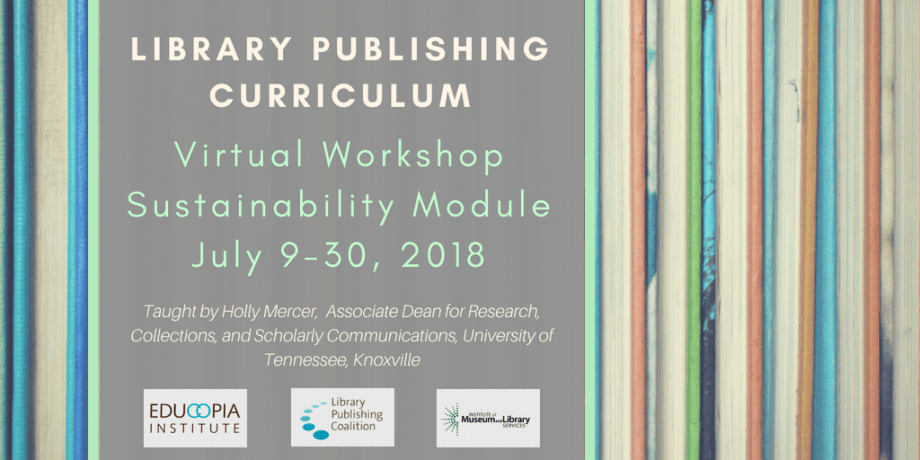June 7, 2018
By Ian Harmon
Editor’s note: This is part of a series of reflections by community members on the recent Library Publishing Forum and Owned by the Academy: A Preconference on Open Source Publishing Software. See the whole series.
When I learned that this year’s Library Publishing Forum preconference was called “Owned by the Academy,” I knew right away that I had to attend. I was just beginning my new job as Scholarly Communications Librarian at West Virginia University, and our Dean had recently mentioned to me the idea of academically-owned publishing. So the preconference presented a perfect opportunity to learn more about an area of interest at my new institution.
I anticipated that I would learn about lots of different open source publishing platforms, and leave the conference better informed to make recommendations as to which of these would be a good fit for my library, and this certainly happened. But since returning from Minneapolis, I’ve also been spending a lot of time reflecting on owned by the academy as a concept, and so I’m going to dedicate this post to sharing some of my thoughts on this issue.
Prior to the preconference, the phrase owned by the academy brought to my mind open source publishing software built and supported by a community of academic librarians, IT and development staff, and academically-oriented non-profits. I imagined that under an “academically-owned” setup, the software and infrastructure would be hosted at the institutional or consortial level and that commercial entities would not have a role to play.
But in light of my experience at the Owned by the Academy Preconference (and the Library Publishing Forum as a whole), I’ve been reconsidering what owned by the academy really means. At the preconference, there were representatives from colleges, universities, and non-profits, but some for-profit businesses were represented as well. So I’ve been thinking a lot about whether for-profit involvement is compatible with academic ownership. (more…)

